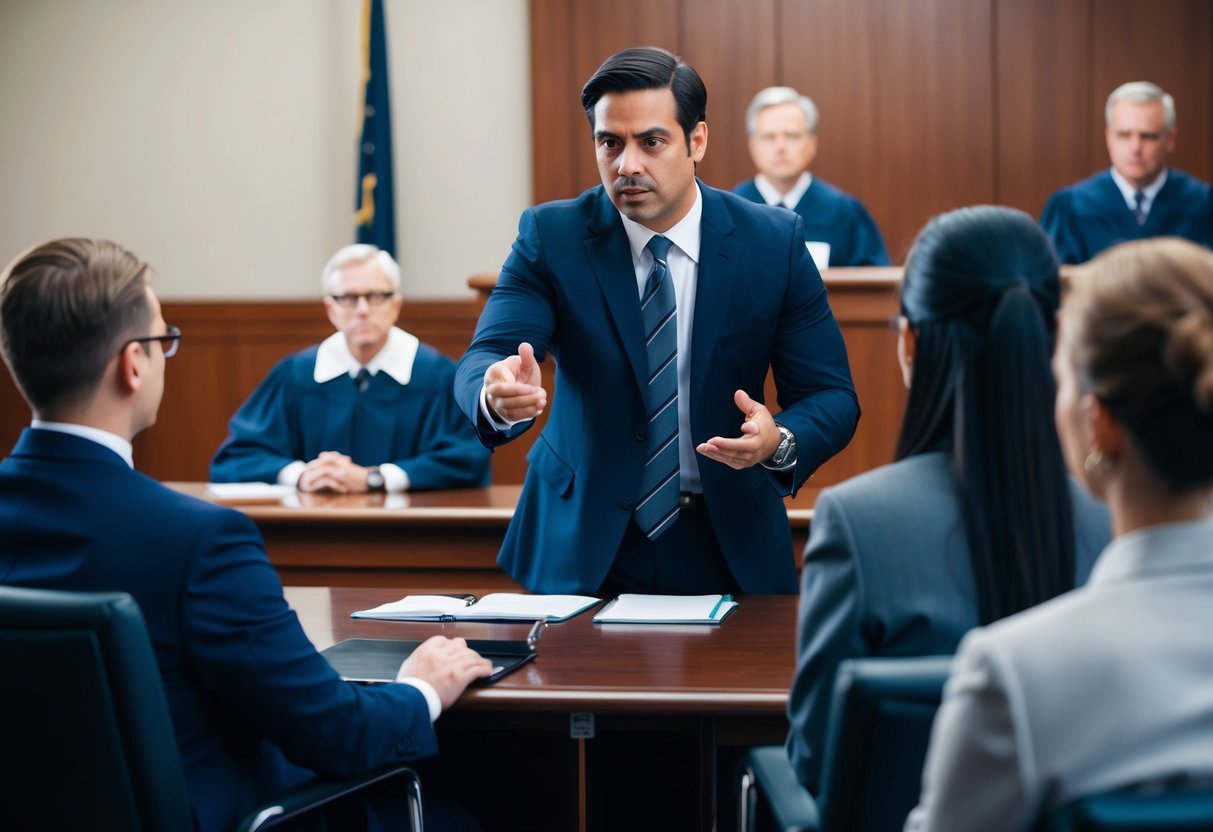Understanding Felony Charges and Legal Representation
Felony charges are serious and can lead to severe penalties. Having proper legal representation is crucial to navigate the complex legal system.
The Nature and Types of Felonies
Felonies are serious crimes that can result in severe punishment. They differ from misdemeanors, which are less serious offenses, often resulting in lighter penalties. Examples of felonies include murder, rape, and armed robbery.
Penalties for felonies can include imprisonment, substantial fines, and loss of certain rights, like the right to vote or own a firearm. The specific penalties depend on the severity of the crime and other factors.
Role of a Criminal Defense Attorney
A criminal defense attorney plays a vital role in defending against felony charges. They help the accused understand the charges and potential consequences. They can negotiate with the prosecutor and aim to reduce charges or penalties.
Defense attorneys investigate the case, gather evidence, and identify weaknesses in the prosecution’s case. They also represent the accused in court, presenting arguments and questioning witnesses.
The Right to Legal Representation
Every person accused of a felony has the right to legal representation. This is guaranteed by the Sixth Amendment of the U.S. Constitution. If a person cannot afford an attorney, one must be provided.
Legal representation ensures that the accused can mount an effective defense. It helps protect their rights and ensures that they receive a fair trial. Without a defense attorney, navigating the legal system can be daunting.
Defining the Burden of Proof
In felony cases, the burden of proof lies with the prosecutor. This means that the prosecutor must prove, beyond a reasonable doubt, that the accused committed the crime. The accused is considered innocent until proven guilty.
Meeting the burden of proof requires presenting credible evidence and convincing the court of the accused’s guilt. The defense attorney’s job is to challenge this evidence and create doubt about the prosecution’s case. This is a fundamental aspect of the justice system.
Formulating a Robust Defense Strategy

Formulating a defense in response to felony charges is a delicate process. It involves creating an alibi, questioning the prosecution’s proof, providing witness testimonies, and maintaining credibility and honesty.
Developing the Alibi Defense
An alibi indicates that the accused was elsewhere when the crime occurred. They may provide evidence, like receipts or surveillance footage, showing their location during the crime. Cell phone records can also be useful. A reliable witness who can vouch for seeing the defendant can strengthen this defense. It’s crucial to gather and present this alibi evidence accurately to build a successful defense strategy against the criminal charges. Failing to establish a solid alibi may leave doubts about the defendant’s innocence.
Challenging the Prosecution’s Evidence
Challenging the prosecution’s evidence involves pointing out flaws or inconsistencies in the prosecution’s case. The defense can question the reliability of witnesses and the validity of forensic evidence. They may highlight errors in evidence handling or issues like unreliable eyewitness testimony. By raising doubts, the defense aims to ensure the jury cannot find guilt beyond a reasonable doubt. This approach is crucial for weakening the prosecution’s stance and defending against the charges effectively.
Presenting Your Own Witness Testimonies
Providing witness testimonies in defense supports the alibi or disproves the prosecution’s claims. Witnesses can confirm the defendant’s location during the crime or contradict the prosecution’s evidence. Witnesses who can present clear and honest accounts are invaluable in this process. The defense should ensure these testimonies are consistent and credible. Properly handled, witness testimonies can create reasonable doubt about the defendant’s guilt and help establish their innocence.
The Importance of Credibility and Honesty
Credibility and honesty in the defense are key. False statements or unreliable evidence can harm the defendant’s case. Staying transparent with the attorney ensures the defense approach remains valid and effective. By being honest, the defendant retains trust in the eyes of the court, which is critical. A defense built on genuine, credible data strengthens the overall strategy against the charges. This honesty helps in presenting a solid case and boosts the chances of a successful defense.
Navigating the Trial Process and Potential Outcomes

Understanding how to navigate a felony trial is crucial. This section covers trial preparation, the benefits of plea bargaining, and exploring legal options to prove one’s innocence.
Mastering the Art of Trial Preparation
Trial preparation is key to a strong defense. Criminal defense lawyers often start by reviewing all evidence. They look for any inconsistencies or errors.
Building a strong defense means gathering witnesses and creating a solid strategy. Lawyers meet with their clients often to prepare them for what to expect.
During this phase, it’s important to understand the risks and potential outcomes. Good preparation can make a significant difference in the trial’s end result.
Negotiation and Plea Bargaining
Negotiation is a vital part of the trial process. Lawyers sometimes negotiate with prosecutors to reduce charges or penalties. This is known as plea bargaining.
Plea bargains can benefit both sides. For the accused, it may mean less jail time. For the state, it can save time and resources.
However, accepting a plea bargain can also mean having a criminal record. It’s important to weigh the pros and cons before deciding. Skilled lawyers help their clients make informed choices.
Understanding Legal Options for Acquittal
When facing felony charges, legal options for proving innocence exist. One key option is arguing that the evidence is insufficient.
Another legal option is showing that law enforcement violated rights during arrest or investigation. A good law firm will look for any legal missteps in the case.
Sometimes, providing a strong alibi or witness testimony can lead to acquittal. The goal is always to prove the accused is innocent and avoid wrongful conviction. Expert criminal defense strategies are essential for navigating these complicated processes.




